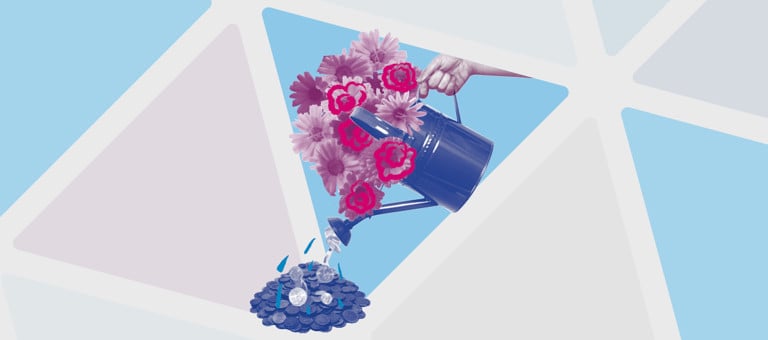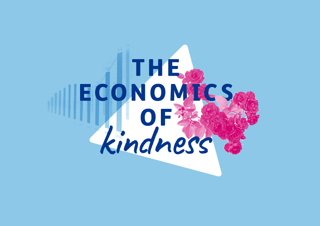
Ian Peters has held senior executive and non-executive roles across public, private and third sectors and draws on his wealth of experience to reflect on the challenges of trying to be kind to all stakeholders.
Since 1994, I have tried to be a kind leader in a kind organisation. I didn’t call it that at the time. 30 years later I will say that this is hard. It is nuanced and involves trade-offs and judgements. It is dynamic in a shifting context, and requires honesty with yourself. Kindness is a fungible concept – what is kind to one audience can seem anything but to another.
This article is part of our series on the Economics of Kindness.
"Kindness is a fungible concept – what is kind to one audience can seem anything but to another."
Being kind to employees
It is a trite saying, but “happy staff = happy customers = better performance” is not a bad rationale for starting with kindness to employees. It is about fair remuneration, developing the individual, providing the right working environment and the right work life balance. It pays back in better retention, higher performance and talent attraction.
At British Gas I introduced paid leave for working carers, now up to one month a year to look after dependant relatives. We were the first large UK company to do so and proved the sceptics wrong in that it had a positive economic impact in staff retention, attraction and productivity.
But being crystal clear and telling someone what you think are cornerstones of kindness. They might not want to hear it, and it might sting a little, but it is often what we value most in the people we surround ourselves with. Context is everything though – and how you deliver that message needs to be very different in the working cultures of, for instance, the UK, India or Japan. And in a world of hybrid working it is even more challenging.
Most organisations at some point downsize. The principles of honesty, openness and fairness in how that is done are just as important. There is a kind and brutal way of doing that. I even experienced in my banking days the divisional head standing in front of the team revealing a series of org charts with names on. If by the last slide you had not seen your name, you were out!
Honest conversations are hard, require preparation and practice but are often game changers.
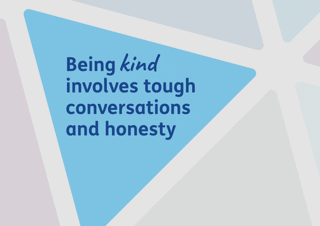
Being kind to customers
Baringa commissioned a global survey recently which evidenced that 61% of consumers said they refused to buy a product or service where they thought the company was unkind. 76% said they considered the behaviour of the company when making a purchase.
Those surveyed defined kindness as a set of attributes based on how companies treat their staff, the environment, their suppliers, customer service, integrity, cruelty to animals, ethics and a record of downsizing.
This is not a unique survey. Consumers are increasingly mindful of greenwashing and virtue signalling, as well as becoming more demanding of brands and organisations. They prefer to feel good about their purchases.
Being kind to customers often relies on being kind to suppliers and developing strategic relationships. I have led Barts Health and UKHSA through near existential crises. They would not be where they are today if it were not for their strategic partners, their capability and their capacity to move at pace and scale. Building the London Nightingale Hospital in nine days and a fully equipped 250 bed intensive care unit in 5 weeks should have been impossible.
"Being kind to customers often relies on being kind to suppliers and developing strategic relationships."
Being kind to your investor
Kind organisations care where they invest, but what happens when economic reality bites? ESG investments attract a lot of money. Recently, however, global events have meant that ESG funds have underperformed more traditional based funds. I chair the Investment Committee of two charities – both very pro-environment and instinctively purist ESG investors. When asked recently whether they would accept lower returns for environmental purity or a pragmatic cap on non-ESG holdings for a higher return, both voted to become economic pragmatists at least for now. Businesses exist in large part to make a profit. Being kind will therefore only make sense if it pays dividends often in the literal sense. Kindness is not philanthropy.
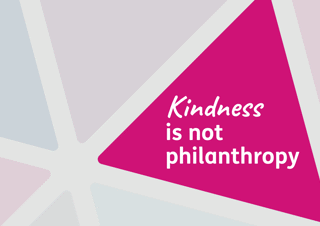
Baringa commissioned research evidenced that 47% of kind companies doubled their EBITDA over 10 years, and by exception 53% did not. 34% of unkind companies had negative EBITDA growth over the same period, 66% had positive growth. Overall there was a 14% net positive delta in favour of kind companies having consistent EBITDA growth over 5%. Is this compelling? Does kindness always pay? To answer this and probe into the other lenses would require complex analysis of root cause and effect, simple and multi variant drivers.
Rather than look at each perspective singularly I would argue the aggregation of kindness across all of those dimensions enables the generation of trust. Trust is the outcome of sustained capability, reliability, behaviour and honesty. High trust organisations usually map to excellent collaborators internally and externally. They are not insecure, they are open to challenge and new ideas. They are less controlling, less insular.
Conversely, low trust organisations have less empowered accountability and compensate with an excess of process, layers and bureaucracy, all of which are less attractive for investors.
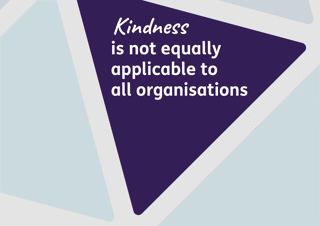
Being a kind leader
Clarity and consistency of commitment to a kind purpose takes trusted organisations to an even higher level. Clarity often requires tough choices and courage to jettison some concepts and champion others. Leaders have a critical role to play in establishing, championing and reinforcing that clarity of purpose. We walk around with megaphones, metaphorically, with every word or action scrutinised under a magnifying glass.
Clarity of purpose can be a real differentiator, especially when untainted by elements seen by some audiences as unkind or unfair. Octopus Energy have done an outstanding job establishing and reinforcing their purpose in redefining energy and leading in the energy transition.
I am committed to trying to be a kind leader of kind organisations but I have not always succeeded. Kindness is not equally applicable to all organisations. Context is everything. And it is changing with increasing speed. Empathy and understanding your stakeholders is critical – the EQ alongside the IQ. I have sat in senior roles in various sectors and rationalised what is right, fair and kind for all stakeholders: whether it be restoring weak balance sheets to provide financial stability or generating profits to invest in new and alternative energy sources. Being a kind organisation requires real honesty to recognise where you fall short, and tough decisions.
The American philosopher Dr Wayne W Dyer once said: “If you have the choice between being right and being kind, choose being kind.”
"Clarity and consistency of commitment to a kind purpose takes trusted organisations to an even higher level."
About the author
Ian’s professional background spans banking, insurance, energy, healthcare, water, social housing and the tough world of unpaid carers. He has been Managing Director of British Gas, Chairman of British Gas Services Limited, Vice Chairman of Peabody and Non-Executive Chairman of Barts Health NHS Trust, to name only a few. He is currently Non-Executive Chairman for UK Health Security Agency as well as holding a handful of other part time Non-Executive Chairman and Director roles.
Meet our expert
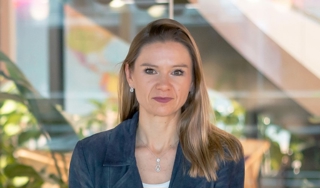
Ellen Fraser
Ellen Fraser leads Baringa’s global Energy Retail, Networks and Water practice and has the responsibility for Baringa’s portfolios in the UK, Europe and Australia. She’s sat in boardrooms with the CEOs of every major UK energy supplier, and even informed policy with energy regulator Ofgem. She’s a familiar face commenting on the BBC, and quoted everywhere from the Financial Times to The Guardian.
Learn moreRelated Insights
Trending content in this series
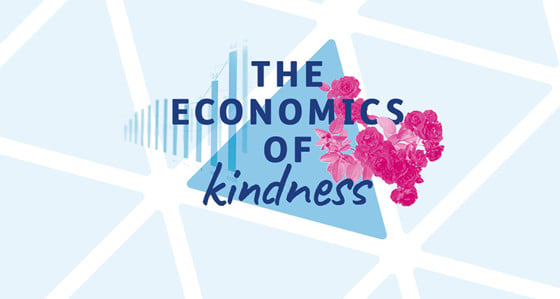
Introducing the Economics of Kindness
At Baringa we’re convinced that, no matter the macroeconomic backdrop, kindness in business really does pay. That’s why we’re taking this opportunity to explore the economics of kindness across four pillars: people, business, leadership and investors.
Read more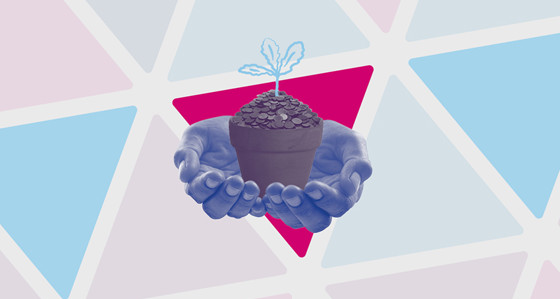
People – planet – profit, in that order
The notion of a ‘triple’ bottom line – people first, then planet, then profit – is reshaping how organisations around the world do business. They’re bringing corporate kindness to the fore as we enter a new type of economy, and the businesses that organise themselves in this way will be the ones that succeed.
Read more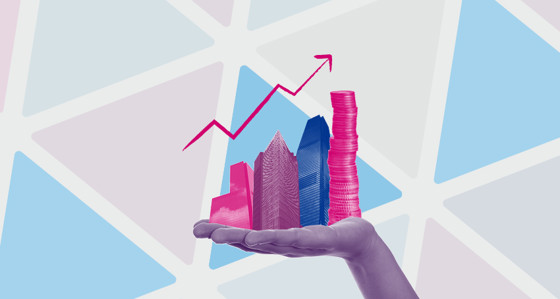
Redefining kindness in the workplace
Corporate kindness is all about the impact an organisation has on the world, engaging in responsible practices that benefit their customers, employees, and the communities they operate in.
Read more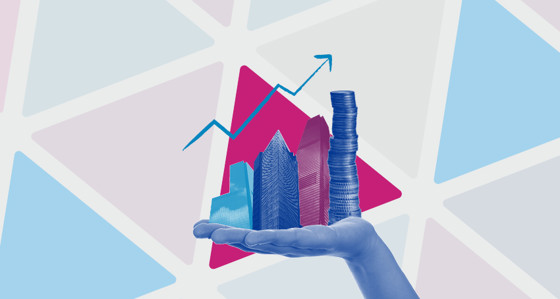
Bringing kindness back to the top of the leadership agenda
Should kindness be back at the top of the leadership agenda? Managing Partner Adrian Bettridge discusses how when we lead with kindness, we generate lasting success for ourselves, our clients and our businesses.
Read more
It’s not easy to be a kind leader
Can leaders be kind all of the time? What gets in the way? Ian Peters reflects on the challenges and trade-offs of trying to be kind to all stakeholders.
Read more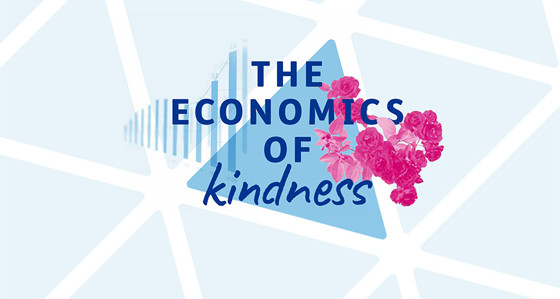
Our Economics of Kindness journey: the story so far
What have we learned about kindness in business and in our public organisations? Does it pay? And if so, how?
Read more